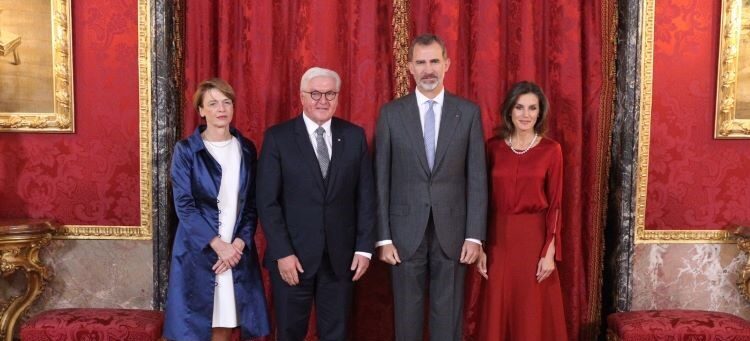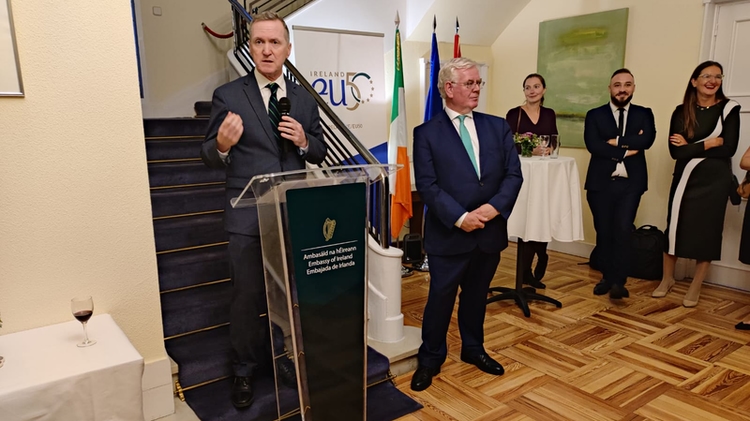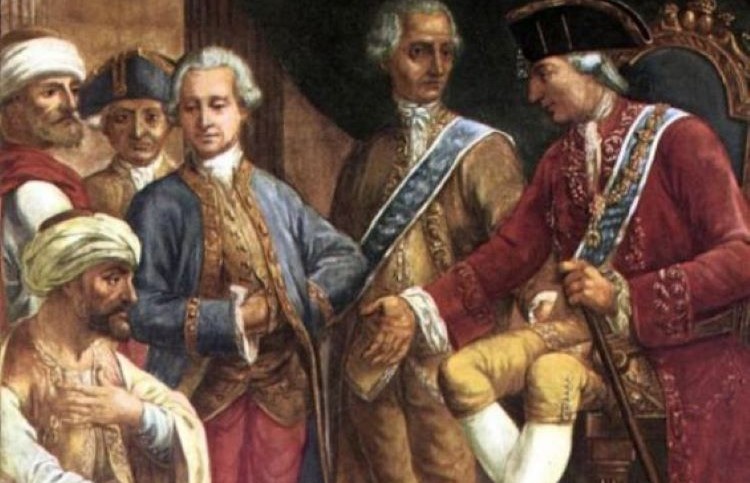The Diplomat
The King and Queen will pay a state visit to the Federal Republic of Germany on October 17, 18 and 19, in response to an invitation from the President of the Republic, Frank-Walter Steinmeier.
During their stay, Philip VI and Letizia will be accompanied by the Minister of Foreign Affairs, José Manuel Albares; the Minister of Industry, Trade and Tourism, Reyes Maroto; and the Minister of Culture and Sport, Miquel Iceta.
In addition to the institutional part in the capital, Berlin, the program includes a visit to Frankfurt on the occasion of the inauguration of the Book Fair, which will take place on October 18 in the presence of President Steinmeier and in which Spain will be the guest country. The King and Queen will also visit the European Central Bank, according to the Ministry of Foreign Affairs in a press release.
The King and Queen already had the opportunity to welcome President Steinmeier and his wife, Elke Büdenbender, in Madrid in October 2018, to whom they offered a lunch at the Royal Palace. Philip VI and Letizia visited Germany in December 2014, as part of the presentation visits they made to different countries after the accession to the Throne of the Monarch.
The new visit of the King and Queen coincides with a series of events organized by both countries throughout last October to strengthen their bilateral relations. This past Wednesday, the President of the Government, Pedro Sánchez, and the German Chancellor, Olaf Scholz, chaired in A Coruña the XXV Spanish-German Summit, the first since 2013, which was held in Berlin and was led by Mariano Rajoy and Ángela Merkel.
The A Coruña Summit was attended, on the Spanish side, by the three Vice-Presidents of the Government (Nadia Calviño, Yolanda Díaz and Teresa Ribera) and the Ministers of Foreign Affairs, Defense, Industry, Trade and Tourism; Agriculture, Fisheries and Food and Universities. Olaf Scholz was accompanied by the Vice-Chancellor and Minister of Economy, Robert Habeck, and the Ministers of Finance, Foreign Affairs, Defense, Labor, Research and Science, and Agriculture.
During the summit, the two governments signed a Joint Declaration and an accompanying Action Plan, which structures and renews the bilateral relationship through a wide range of initiatives in various fields. In addition, the two governments signed two collaboration agreements on social and labor issues and on higher education and training.
The Joint Declaration, among other proposals, defends the increase of EU military capabilities, expresses support for Ukraine and commits to discuss and reach agreements on the future development of European fiscal rules. Likewise, the two countries advocate “a greater interconnection capacity of the Iberian Peninsula to improve its contribution to the security of supply to the whole EU” and consider of “utmost importance” that the MidCat gas pipeline -which would connect the Iberian Peninsula with the rest of the EU and which is opposed by France- be operational in 2025. During the Summit, Spain’s possible participation in the joint European anti-missile defense system led by Germany was not addressed, but Pedro Sánchez pledged to “study it” when “it is the subject of debate”.
The meeting in the Galician city also took place just a few days before Pedro Sánchez’s official visit to Berlin, which will take place from October 13 to 15. At the end of August, the head of the Executive participated in a meeting of the German Council of Ministers, at the express invitation of Olaf Scholz, in order to share the experience of the Spanish government in the elaboration of its National Security Strategy.







